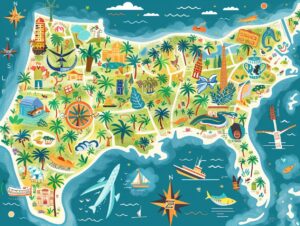Florida’s intellectual property laws play a crucial role in protecting the innovations and investments made by pharmaceutical companies.
In this comprehensive guide, we will explore the key IP laws in Florida for the pharmaceutical industry, including how they safeguard patents, trade secrets, and generic drug approvals.
Learn about the process of obtaining a patent, defending against infringement, and gain valuable insights into navigating the complex legal landscape of pharmaceutical intellectual property in Florida.
Key Takeaways:
- Intellectual Property Laws are crucial for protecting pharmaceutical companies in Florida.
- Patents are essential for pharmaceutical companies and can be obtained through a specific process in Florida.
- Pharmaceutical companies should take measures to protect their trade secrets and navigate the generic drug approval process carefully in Florida.
Intellectual property (IP) laws are created to safeguard the products of the mind, such as inventions, literary and artistic works, symbols, names, images, and designs used in trade. These laws grant creators exclusive rights to their work, guaranteeing their ability to manage and benefit from their intellectual endeavors without concerns of unauthorized usage or infringement.
Why are they Important for Pharmaceuticals?
Intellectual property laws play a critical role in the pharmaceutical industry by granting exclusive rights for the marketing and sale of new drugs. This ensures that companies can recover the costs of their investments in research and development.
Patents and regulatory exclusivity are essential in protecting pharmaceutical companies’ innovations from being imitated by competitors. The FDA, tasked with assessing and overseeing the safety and effectiveness of new medications, relies on these intellectual property protections to encourage drug discovery and uphold patient safety.
Specialized IP lawyers assist in navigating the intricacies of intellectual property protection within the pharmaceutical sector, aiding companies in securing and defending their innovations to sustain a competitive advantage in the market.
Understanding Florida’s IP Laws for Pharmaceuticals
The intellectual property laws concerning pharmaceuticals in Florida are created to work alongside federal regulations. They offer extra protection and enforcement measures to help pharmaceutical companies innovate and compete in the market. It is important for businesses in the state to have a good grasp of these laws to protect their intellectual property assets.
What are the Key IP Laws in Florida for Pharmaceuticals?
The intellectual property laws in Florida related to pharmaceuticals encompass state-specific regulations that cover patents, trademarks, and copyrights, alongside federal laws that offer comprehensive protection.
Patents are vital for safeguarding the innovative pharmaceutical products and processes developed by industry participants. They provide the inventor with exclusive rights to manufacture, utilize, and sell their inventions for a specific duration, which promotes investments in research and development.
Contrastingly, trademarks protect pharmaceutical brands, logos, and product names, preventing the unauthorized usage of similar marks that could lead to market confusion. Intellectual property law attorneys assist pharmaceutical companies in navigating the intricacies of these legal structures, ensuring that their innovations remain safeguarded and valuable in the competitive market.
How do these Laws Protect Pharmaceutical Companies?
These laws provide protection for pharmaceutical companies by granting them exclusive rights to their inventions, brands, and creative works, thereby preventing unauthorized use and promoting investment in the development of new drugs.
This protection allows companies to defend their innovations from being copied or exploited by competitors. Patents protect the unique formulations and production processes of drugs, ensuring that the company maintains control over the production and distribution of their products.
Trademarks are essential for distinguishing pharmaceutical brands in a competitive market, enabling consumers to easily recognize and trust a specific company’s products. Copyrights safeguard the creative aspects of pharmaceutical advertising, packaging, and educational materials, assisting companies in maintaining a competitive advantage.
In upholding these protections, intellectual property (IP) lawyers and attorneys play a crucial role by navigating the intricate realm of intellectual property law, offering guidance to companies on strategies for safeguarding their assets, and representing them in legal proceedings to defend against infringement and uphold their rights.
What are the Potential Consequences for IP Infringement in Florida?
The potential consequences for IP infringement in Florida can be severe, including legal actions such as cease and desist letters, litigation in state or federal court, and significant financial penalties for the infringing party.
When accused of IP infringement in Florida, individuals or businesses may face injunctions prohibiting further use of the infringing material, court-ordered damages, or even the seizure of assets.
IP defense attorneys play a crucial role in representing defendants during litigation, crafting legal strategies, and negotiating settlements to minimize the impact of infringement allegations. These attorneys possess expertise in intellectual property law, helping accused parties navigate complex legal proceedings and construct a robust defense to protect their rights and interests.
Navigating the Patent Process in Florida for Pharmaceuticals
The process of obtaining a pharmaceutical patent in Florida entails various important steps, including conducting comprehensive patent searches and submitting applications to the United States Patent and Trademark Office (USPTO).
It is essential to adhere to both state and federal regulations throughout this process to secure exclusive rights to new pharmaceutical inventions. This process typically requires the assistance of an experienced intellectual property (IP) attorney.
What is the Process for Obtaining a Patent in Florida?
The process for obtaining a patent in Florida involves conducting a prior art search, preparing and filing a patent application with the United States Patent and Trademark Office (USPTO), and responding to any office actions or rejections from the USPTO.
Conducting a prior art search is a crucial first step in the patent process, as it helps determine if your invention is novel and non-obvious. Once the search is completed and you are confident in moving forward, the next step is to prepare a detailed patent application that meets all the USPTO requirements.
This application will include a description of your invention, claims outlining its unique features, and any necessary drawings or diagrams. An experienced IP attorney can guide you through this process, ensuring that your application is strong and compliant with patent laws and regulations.
What are the Requirements for a Pharmaceutical Patent in Florida?
In Florida, to be eligible for a pharmaceutical patent, the invention must meet the criteria of novelty, non-obviousness, and utility, in accordance with the standards outlined by the USPTO.
Novelty pertains to the unique and original aspect of the invention that has not been previously disclosed.
Non-obviousness necessitates that the invention is not readily apparent to a person skilled in the relevant field.
Utility indicates that the invention has a practical application and offers a beneficial result.
IP attorneys play a vital role in aiding inventors in meeting these criteria by conducting comprehensive research to confirm the novelty of the invention, evaluating its non-obviousness in comparison to existing technologies, and substantiating its utility through detailed documentation and evidence.
How Long Does a Pharmaceutical Patent Last in Florida?
A pharmaceutical patent in Florida typically lasts for 20 years from the date of filing the application with the USPTO, though regulatory exclusivity periods can extend market exclusivity for certain drugs.
Regulatory exclusivity can serve as an important factor in prolonging a drug’s market exclusivity beyond the initial patent term. Certain regulatory mechanisms, such as new chemical entity exclusivity and pediatric exclusivity, can grant additional years of monopoly protection to pharmaceutical companies.
For instance, in the United States, new chemical entities are granted five years of exclusivity, while pediatric exclusivity may provide an additional six months. These extensions incentivize companies to invest in the development of new drugs, ensuring a balance between innovation and accessibility in the pharmaceutical industry.
What are the Steps for Defending a Pharmaceutical Patent in Florida?
Defending a pharmaceutical patent in Florida involves monitoring for potential infringements, sending cease and desist letters to alleged infringers, and, if necessary, initiating litigation to enforce patent rights.
IP lawyers play a crucial role in this process, providing legal expertise and strategic guidance throughout. These professionals conduct detailed analyses to identify potential patent violations, draft the necessary legal documents such as cease and desist letters, and represent the patent holder in court proceedings if infringement disputes escalate.
Defense attorneys are also instrumental in crafting a robust defense strategy, gathering evidence, and presenting arguments to safeguard the patent rights of pharmaceutical innovators. Their collaborative efforts help ensure that patents are adequately protected from unauthorized use or replication.
Protecting Trade Secrets in the Pharmaceutical Industry in Florida
Ensuring the protection of trade secrets in the pharmaceutical industry in Florida is crucial for maintaining a competitive edge and safeguarding valuable business assets. Trade secrets encompass confidential formulas, processes, and proprietary information that offer a substantial advantage over competitors. Securing their protection requires strict security measures and legal strategies.
What are the Key Trade Secrets in the Pharmaceutical Industry?
Key trade secrets in the pharmaceutical industry encompass proprietary formulas for drug compounds, unique manufacturing processes, and confidential clinical trial data.
These trade secrets are vital in differentiating one pharmaceutical company from another, representing extensive research, development, and financial investments.
For instance, the specific combination of ingredients in a drug formula may be a closely guarded secret that provides a competitive advantage in the market. The manufacturing processes utilized to produce these drugs efficiently and effectively are closely safeguarded to prevent rivals from duplicating them.
By maintaining the confidentiality of clinical trial data, companies can protect innovative research discoveries and uphold their competitive position in the rapidly evolving pharmaceutical sector.
How Can Pharmaceutical Companies Protect their Trade Secrets in Florida?
Pharmaceutical companies in Florida can safeguard their trade secrets by implementing robust security measures, including non-disclosure agreements (NDAs), employee training programs, and physical security systems.
Additionally, these companies often utilize legal protections, with intellectual property (IP) lawyers playing a key role in developing and enforcing NDAs to protect confidential information.
Alongside legal safeguards, administrative controls such as access restrictions and data handling protocols are commonly employed. Technical measures like encryption methods and secure IT systems are also utilized to prevent unauthorized access and data breaches.
By combining legal, administrative, and technical strategies, pharmaceutical companies strive to uphold the confidentiality of their proprietary information.
What are the Potential Consequences for Trade Secret Misappropriation in Florida?
The consequences for trade secret misappropriation in Florida can involve civil litigation, significant financial penalties, and, in certain instances, criminal charges against the party responsible.
In recent years, there have been notable instances where companies experienced substantial losses due to trade secret theft. This has led to an increased demand for intellectual property lawyers specializing in handling such cases.
These legal professionals are instrumental in assisting businesses in protecting their valuable trade secrets and pursuing legal recourse against those involved in misappropriation.
One prominent case revolved around a tech company that sued a former employee for taking confidential information to establish a competing business. The court ruled in favor of the company, awarding damages and imposing an injunction to prevent further misuse of the trade secrets.
Navigating Generic Drug Approval in Florida
The process of obtaining approval for generic drugs in Florida requires adherence to strict FDA regulations. This involves submitting an Abbreviated New Drug Application (ANDA) in accordance with the Hatch-Waxman Act to demonstrate that the generic drug is bioequivalent to the brand-name version. A comprehensive understanding of federal and state laws is necessary to navigate this process and successfully enter the market.
What is the Process for Obtaining Generic Drug Approval in Florida?
The process of obtaining approval for a generic drug in Florida involves submitting an Abbreviated New Drug Application (ANDA) to the FDA. This application demonstrates that the generic drug is bioequivalent to the brand-name drug.
This submission process is critical to ensuring that the generic drug meets the same quality, safety, and efficacy standards as the brand-name drug. To establish bioequivalence, extensive studies comparing the pharmacokinetics of the generic and reference drugs are necessary.
Documentation such as in vitro dissolution testing, in vivo bioavailability studies, and clinical trial data must be included in the ANDA submission.
Once the FDA receives the application, they conduct a comprehensive review of the data to determine the equivalence of the generic drug. If the evaluation is successful, the FDA approves the generic drug for distribution in the market, offering patients more affordable treatment choices.
What are the Requirements for Generic Drug Approval in Florida?
The requirements for generic drug approval in Florida involve demonstrating bioequivalence to the reference listed drug, following FDA guidelines for safety, efficacy, and quality, and providing detailed manufacturing information as part of the ANDA.
Bioequivalence studies play a crucial role in showing that a generic drug acts similarly in the body compared to its brand-name counterpart. These studies entail comparing the absorption rate and extent of the drug between the generic and reference drug.
The FDA sets forth specific criteria for bioequivalence testing to ensure that the generic drug will deliver the same therapeutic benefit as the branded drug. The ANDA must contain comprehensive details about the drug’s composition, formulation, packaging, labeling, and stability data.
Requirements may vary by state, including specific licensing or labeling regulations.
What are the Potential Legal Issues for Generic Drug Approval in Florida?
Potential legal issues for generic drug approval in Florida involve patent litigation with brand-name drug manufacturers, challenges related to regulatory exclusivity periods, and ensuring full compliance with FDA requirements.
When a generic drug manufacturer seeks approval for a new product, navigating the complex landscape of intellectual property (IP) rights becomes crucial. Patent disputes can arise when the generic drug enters the market, with brand-name manufacturers often seeking to protect their patents through litigation.
Regulatory exclusivity periods present another challenge, as generic manufacturers must carefully strategize to ensure timely entry into the market while respecting these exclusivity periods.
IP lawyers play a vital role in assisting generic drug companies in understanding and responding to these legal hurdles, helping them maneuver through the intricacies of the approval process.
Frequently Asked Questions
What are Florida’s IP laws for pharmaceuticals?
Florida’s IP laws for pharmaceuticals are the set of regulations and protections that govern the creation, distribution, and use of intellectual property related to pharmaceutical products in the state of Florida. These laws cover a wide range of topics, including patent protection, trademark protection, and trade secret protection.
How does patent protection work for pharmaceuticals in Florida?
Patent protection for pharmaceuticals in Florida is regulated by the US Patent and Trademark Office (USPTO), which grants exclusive rights to the inventor or owner of a new and useful pharmaceutical product for a certain period of time. This allows them to prevent others from making, using, or selling the invention without their permission.
What is the purpose of trademark protection for pharmaceuticals in Florida?
The purpose of trademark protection for pharmaceuticals in Florida is to protect the branding and marketing of a pharmaceutical product. This includes the name, logo, or other identifying marks that distinguish the product from others in the market. Trademark protection prevents others from using a similar mark that could cause confusion among consumers.
Are trade secrets protected under Florida’s IP laws for pharmaceuticals?
Yes, trade secrets are also protected under Florida’s IP laws for pharmaceuticals. Trade secrets are confidential and proprietary information that give a company a competitive advantage, such as the formula for a pharmaceutical product. These secrets are protected by law and cannot be disclosed or used by others without the owner’s permission.
How long do IP protections for pharmaceuticals last in Florida?
The duration of IP protections for pharmaceuticals in Florida varies depending on the type of protection. Patents generally last for 20 years from the date of filing, while trademarks can be renewed indefinitely as long as they are in use. Trade secret protection can last indefinitely as long as the information remains a secret.
What should I do if I believe my pharmaceutical IP has been infringed upon in Florida?
If you believe your pharmaceutical intellectual property has been infringed upon in Florida, you should seek legal counsel to determine the best course of action. This may include sending a cease and desist letter, filing a lawsuit, or negotiating a settlement. It’s important to act promptly to protect your rights and prevent further infringement.





















Rate this article:
No Comments yet!